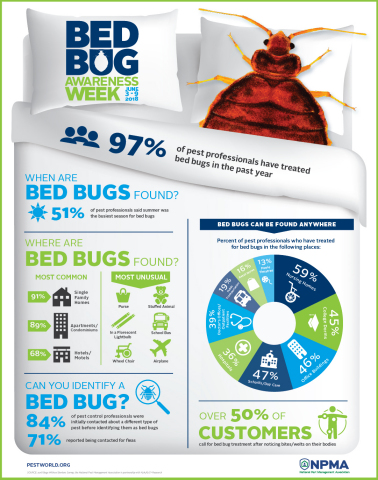The Role Of Pest Control In Food Security And Health
The Role Of Pest Control In Food Security And Health
Blog Article
Published By-Franklin Glover
Are you familiar with the concealed threats that parasites position to the safety and hygiene of your food? From rats to insects, these undesirable site visitors can infect your ingredients, surface areas, and storage space areas.
This post explores the vital function of insect control in keeping the highest criteria of food safety and security and health. Discover please click the following internet site and avoidance procedures that will aid you protect your business, customers, and track record.
Do not allow insects compromise the top quality of your food.
The Influence of Parasites on Food Safety And Security and Health
In your kitchen area, parasites can have a considerable effect on food safety and security and hygiene. These unwanted visitors, such as rodents, insects, and cockroaches, can contaminate your food, surfaces, and tools with harmful bacteria, infections, and bloodsuckers. They can easily access your pantry, closets, and even your refrigerator, leaving behind droppings, urine, and hair.
Not just can they ruin your food by eating via product packaging, yet they can also spread out conditions like Salmonella, E.coli, and Listeria. Visualize preparing a dish for your family members, unaware that the ingredients you're utilizing are already polluted.
It's vital to take immediate action to prevent and control bugs in your kitchen. Normal cleaning, appropriate food storage, and expert pest control measures are essential to make certain food safety and keep a hygienic environment in your kitchen.
Effective Bug Control Techniques for the Food Sector
Carrying out reliable pest control approaches is vital for keeping food security and health in the food market. By executing these techniques, you can prevent parasites from contaminating the food and make certain that your products are risk-free for usage.
One effective approach is to routinely examine and check your center for signs of bug activity. This consists of monitoring for droppings, nests, or any kind of damages caused by pests.
It's likewise important to secure all entrance indicate avoid parasites from getting in the center. Normal cleaning and hygiene are vital, as pests are attracted to food residue and spills.
In addition, correct waste monitoring is essential to avoid the buildup of food waste that can draw in bugs.
Preserving Hygiene Requirements Via Insect Prevention Actions
To maintain hygiene criteria, you should on a regular basis carry out insect avoidance measures. By taking Monitoring systems to avoid pests from entering your food facility, you can make sure the safety and sanitation of your facilities. Here are some effective insect prevention procedures to consider:
- Seal all splits and gaps: Parasites can get in with even the tiniest openings. Frequently examine and seal any kind of voids in doors, windows, wall surfaces, and floorings to maintain bugs out.
- Proper waste administration: Deal with food waste immediately and firmly in secured containers. This will decrease the attraction of bugs and stop problems.
- Routine cleansing and disinfecting: Keeping sanitation in your establishment is vital. Routinely clean and disinfect all areas, paying special focus to areas where bugs might hide or breed.
- Execute a tracking system: Consistently examine your premises for indicators of parasite task. Mount insect surveillance tools, such as catches or sensing units, to identify and deal with any potential concerns at an early stage.
Final thought
So remember, when it pertains to food safety and health, insect control plays an essential role.
By executing effective parasite control approaches and safety nets, we can ensure the highest requirements of sanitation and security in the food industry.
Do not let parasites endanger the quality of our food; let's stand together and shield our health and wellness and wellness.
